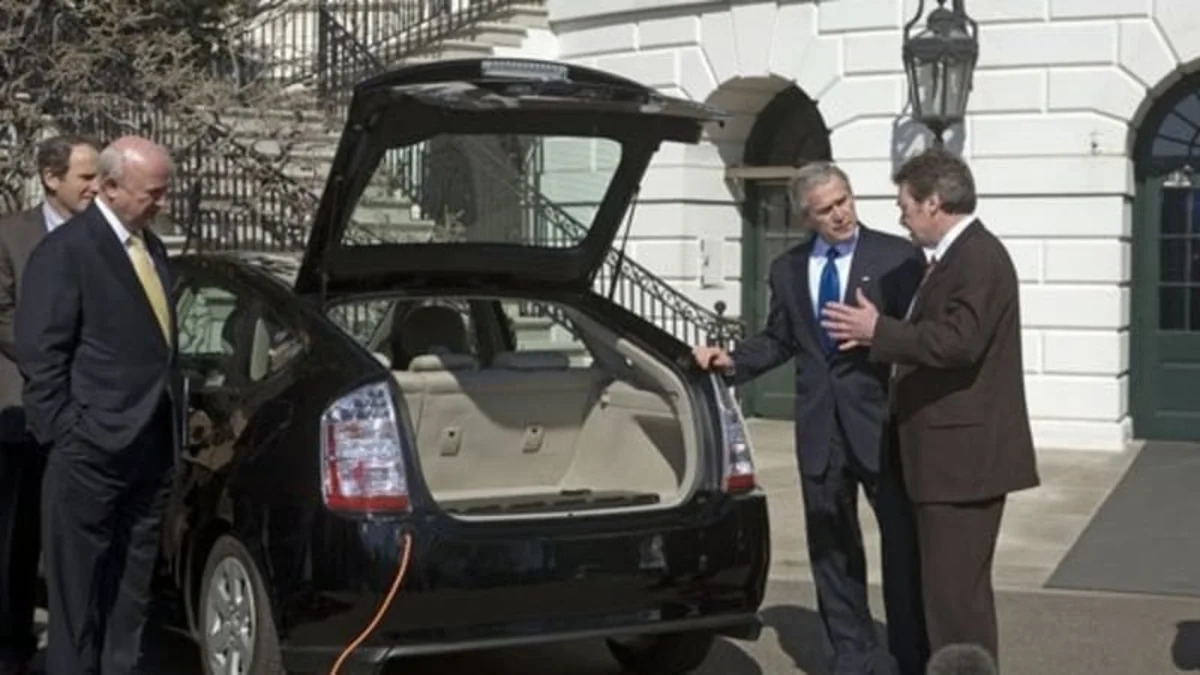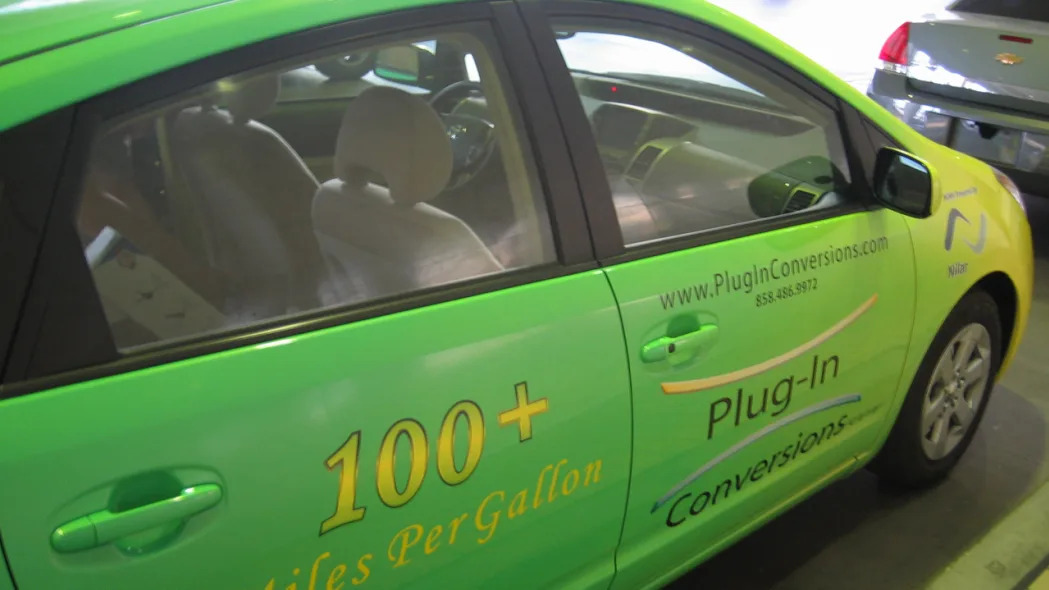Fact 1: Over the last few months, we've seen the federal government spend all sorts of money to try and reach the twin goals of economic resurrection and a cleaner/greener society. In the auto industry, we have the CARS program, the ending (or not?) of the DOE's hydrogen vehicle program, the Advanced Technology Vehicles Manufacturing Loan Program (ATVMLP) – which gave $5.9 billion to Ford, $1.6 billion to Nissan and $465 million to Tesla – and, of course, the bailout of GM and Chrysler. This is a big pile of cash.
Fact 2: President Obama, when he was campaigning for his current job, said that he wanted a million plug-in hybrids on the road by 2015. His proposal, at the time, was to give companies about $4 billion in loans and loan guarantees to develop the plug-ins and to offer consumers a $7,000 tax credit to purchase these vehicles.
Fact 3: 2015 is just over five years away, and there are currently zero production PHEVs available for purchase. The road to getting a million of them out the door in 60 months is not going to be easy.
We have an idea for how to reach – or at least approach – Obama's goal: spend some real money on plug-in conversion technology. We've put some details after the jump.
We're currently spending a week with a converted Prius from Hymotion, a vehicle similar to the one President Bush was shown in 2007. Sure, if you don't drive it like a plug-in, you're not going to get 100 mpg. But learning correct driving and recharging style will be paramount to any successful adoption of PHEVs. And, considering that the Hymotion Prius conversion packs (and others) are available now, why doesn't the government sink some money into making sure that anyone who wants to convert their hybrid to a plug-in vehicle can afford to do so?
The government has been helping to fund natural gas conversions for years, so there's a precedent for this, a precedent that should limit the number of people arguing that the plugs need to be installed at the factory or they won't be safe. Any conversion pack that would qualify for federal money would naturally be required to be safe, but this is a hurdle that has been and can again be cleared. If some money was diverted to a.) expanding the number of hybrid models that conversion packs were available for and b.) to giving consumers a rebate to buy those systems, wouldn't this be an affordable, fairly easy way to at least get a few hundred thousand PHEVs on the roads soon?
Let's play with some numbers. Since we're driving the Hymotion Prius, we'll use their dollar amounts, but all conversion options are pretty pricey right now. For $10,000, someone like Pat Cadam can turn your second-gen Prius into a PHEV in a few hours. For your money, you'll get a car that can go 40ish miles and has a top speed of 35 mph in EV mode. Go further or faster, of course, and the Prius behaves just like it did before the conversion happened. A price point this high is really only attractive to early adopters. What would it take to make getting a conversion done a no-brainer? How about a 30-mile pack for $5,000? Or a 20-mile pack for $3,500 (we're just throwing out numbers here, btw). And, let's say that instead of $4,500 for a new car that gets better than 28 mpg under the CARS program, how about $4,500 off the price of a PHEV conversion? Would people bite at that price? Or, what if the $7,500 plug-in credit that factory-produced PHEVs like the Volt (sorry, ER-EV) will get could be applied to conversions? If so, would $2,500 for a somewhat limited 40-mile range PHEV Prius be too sweet to pass up?
What are we missing? Is this a plan that should be promoted or not?



Sign in to post
Please sign in to leave a comment.
Continue